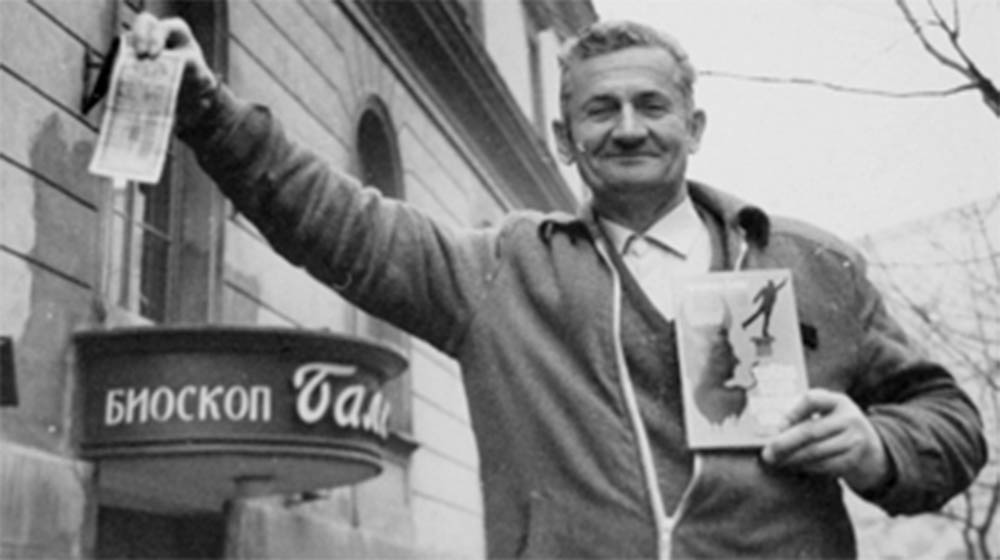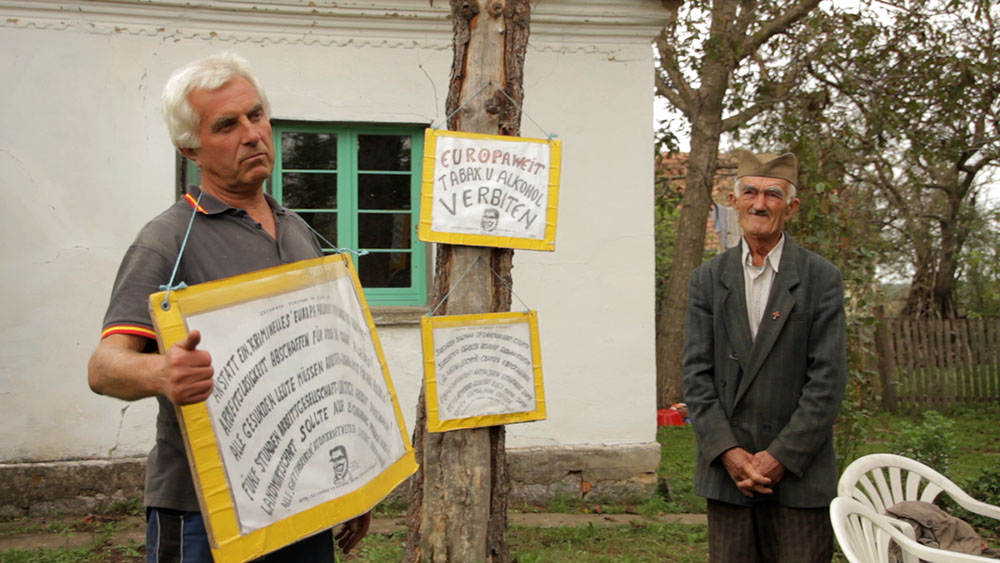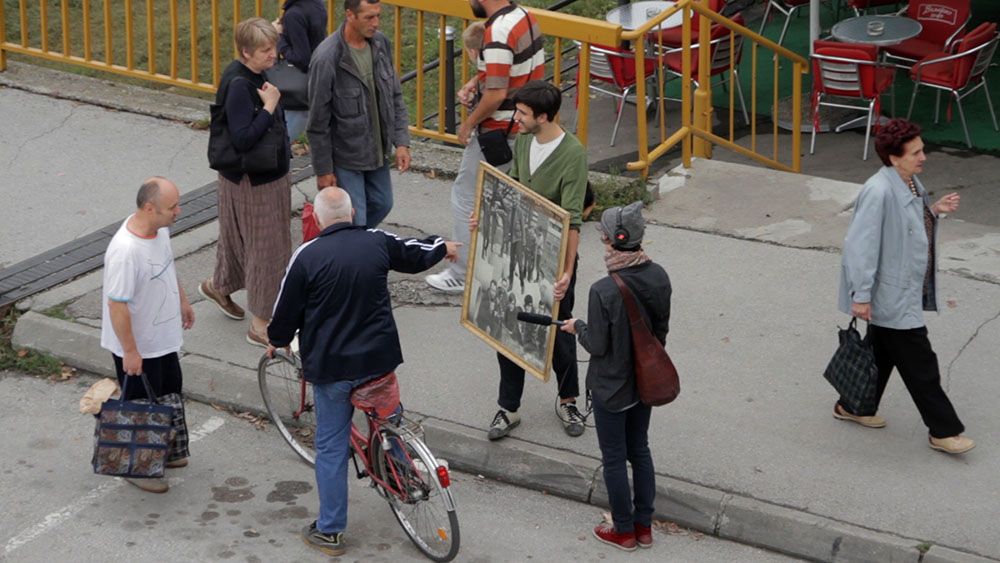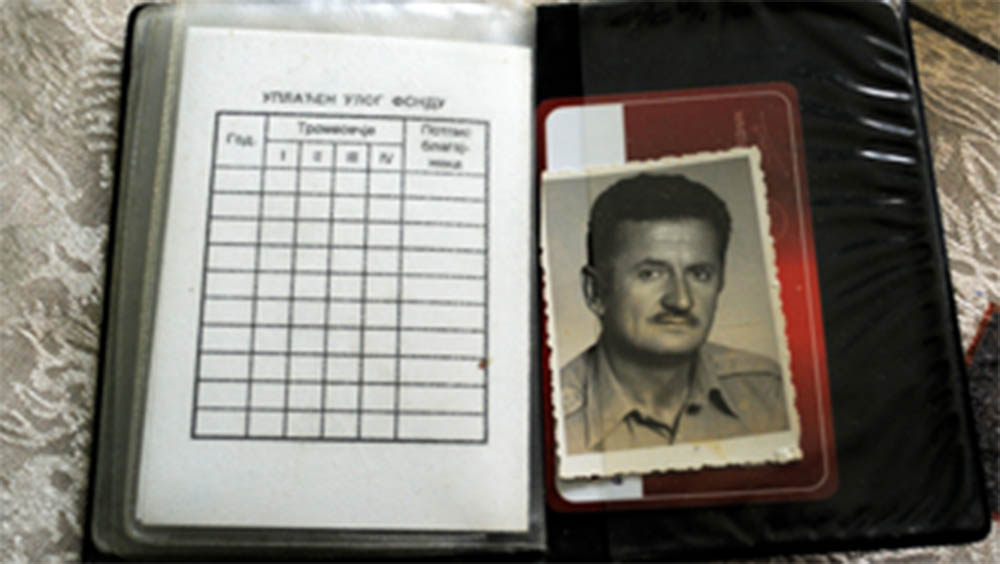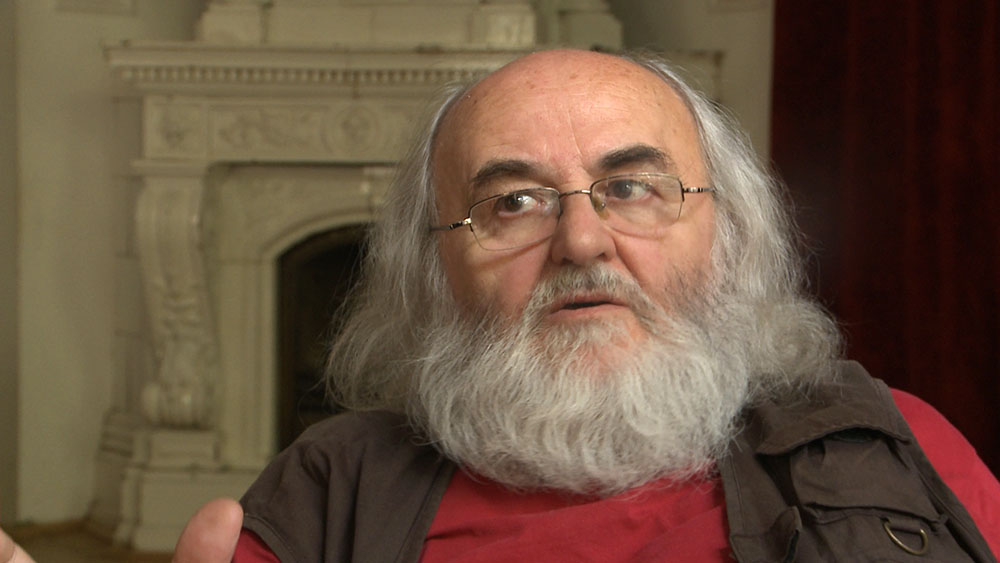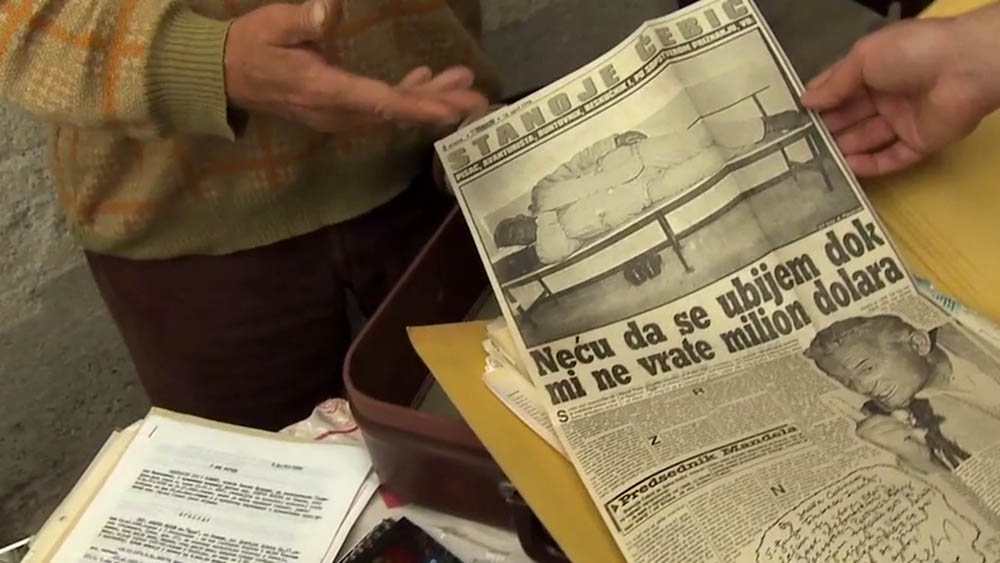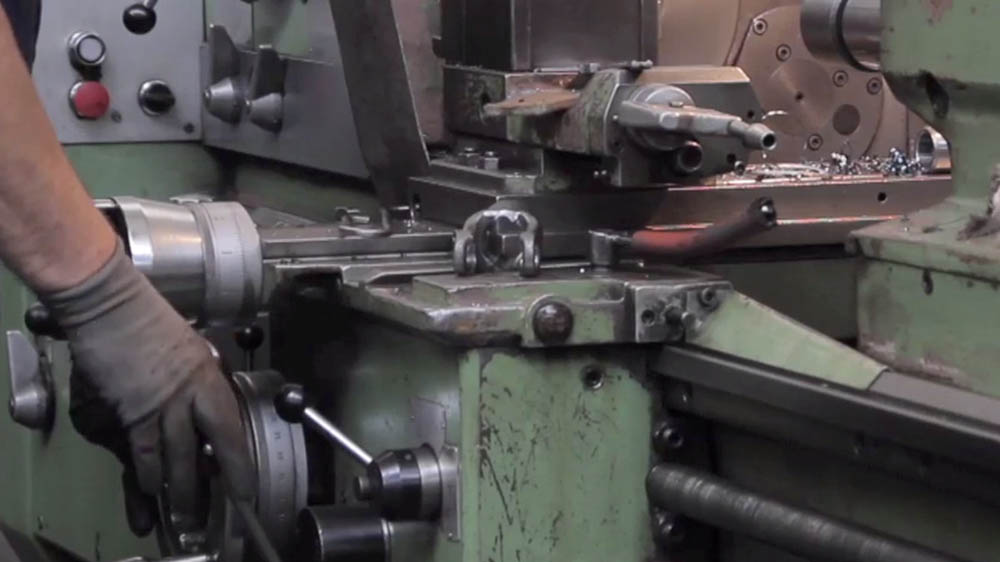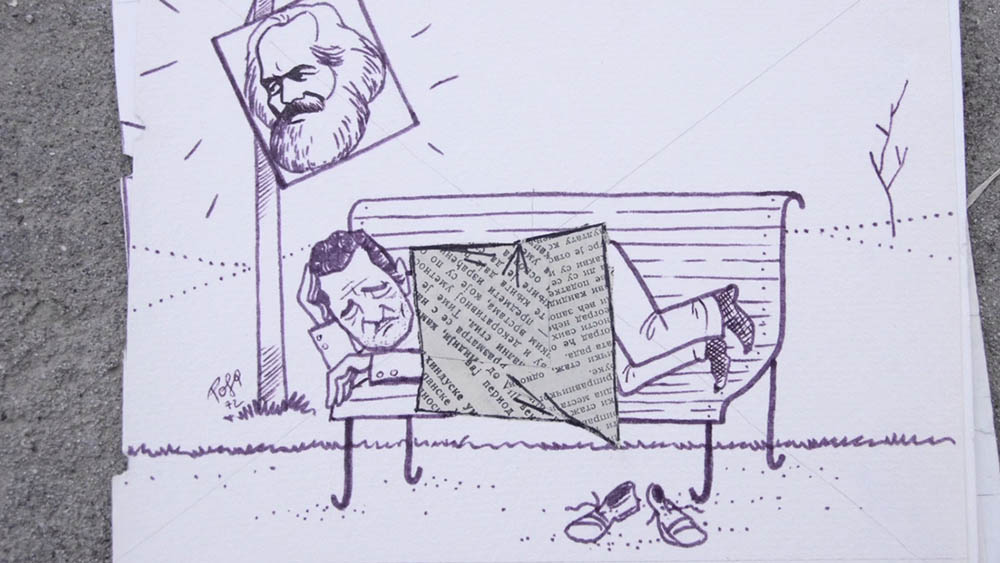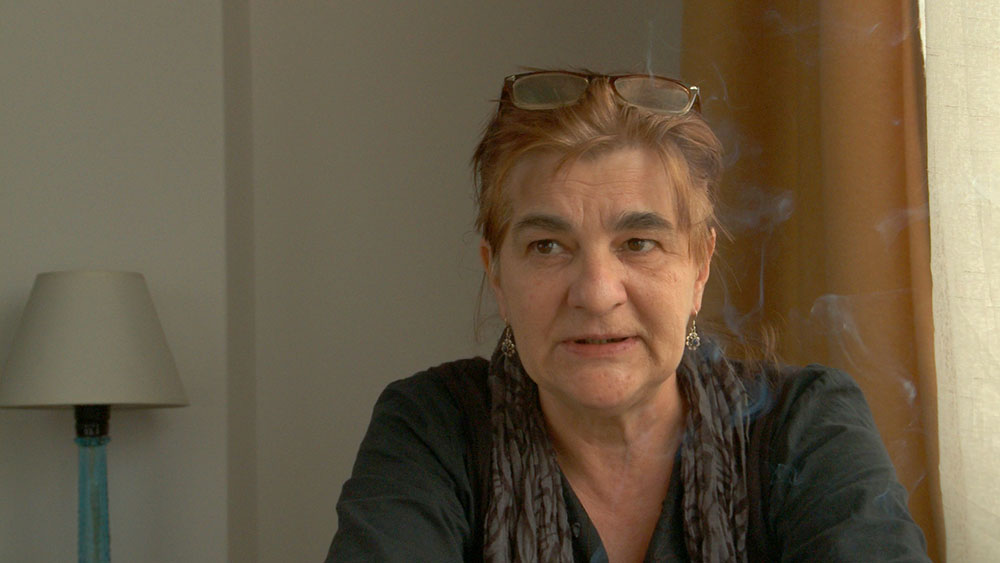KOLT 40 GAP / |
|
″Nobody read Marx in the East″, says the Serbo-Croatian author Bora Ćosić. Worker Stanoje Ćebić adorned himself with pictures of Marx and protested for worker′s rights. In so doing, he demanded that which Yugoslavia′s government had already promised. As a protesting worker, he became an icon of the Belgrade′s 68′ movement; artists and intellectuals took an interest, and had soon styled him a hero. As an actor in a film by the Serbian director Jovan Jovanovic, Ćebić gained a certain fame. In the film, which ran at the 1971 Oberhausen Festival, he plays a caricature of Tito. With the help of his intellectual friends, Cebic was also able to publish his autobiography, which was printed in multiple, large runs. In it, he reports lyrically and sardonically on his odyssey in search of a position as a metal turner - a position that provided humane working conditions. His search lead him to 150 factories. The interest in his book and film awakened a certain hope in Ćebić. The worker wanted to be an artist. But after the fall of Yugoslavia, everyone lost interest in him. Shortly after his death, we start to look into this unusual anti-hero, and visit people and places of remembrance. The narration interweaves these remembrances into a history filled with contradictions. The political events in socialist Yugoslavia constitute the background of this tapestry. The relationship between intellectuals and workers plays a role as well: Whereas the former see him as a representative of the working class, his acquaintances from the working class see him as an artist. The film consciously makes itself complicit in the mystification of this idol, in order to deconstruct it. Contemporaries such as Bora Ćosić and Jovan Jovanović are given the word, and pose important questions about the relationship between work and art, and between workers and artists, as well as about the possibilities and responsibilities of political art. 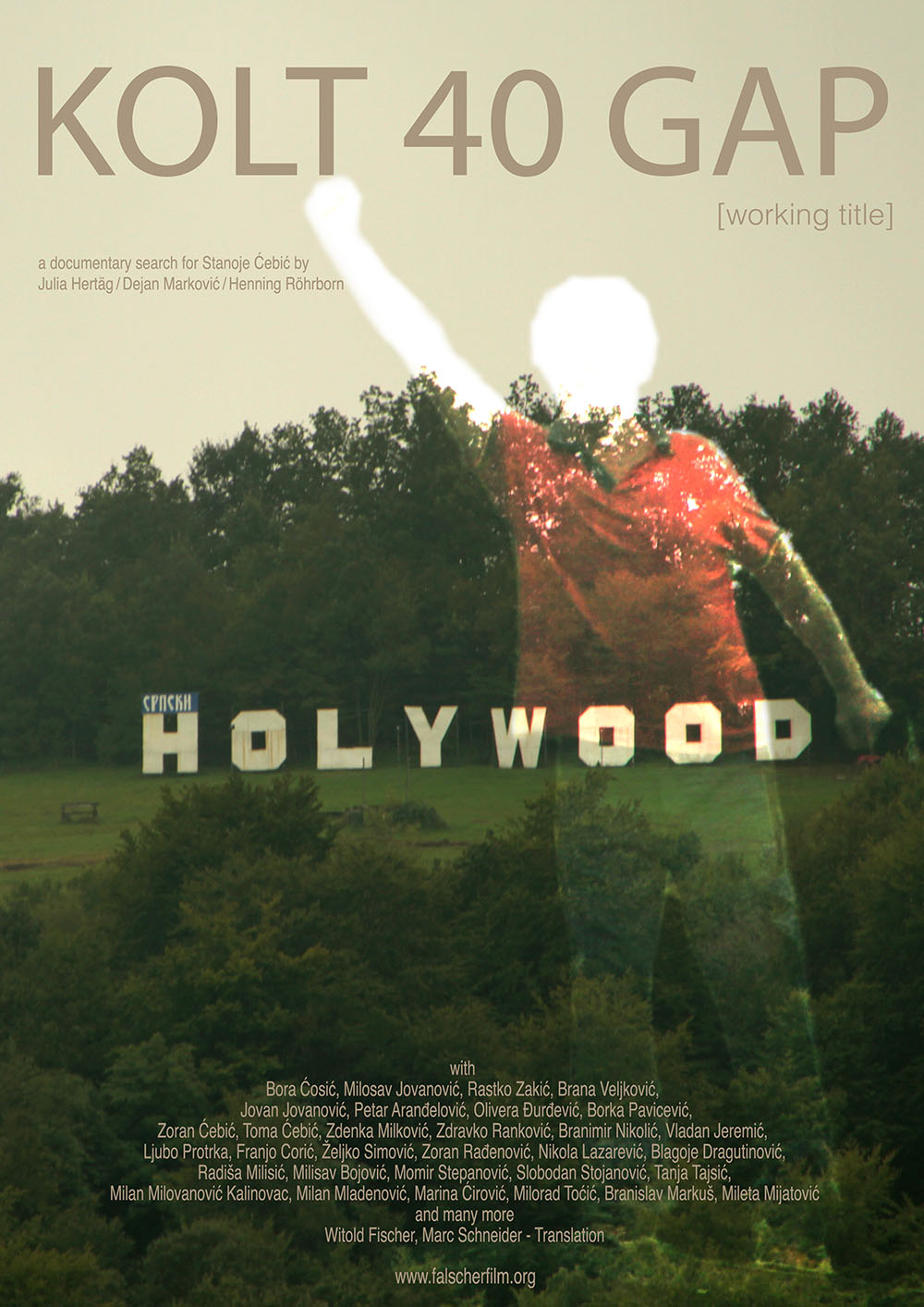 |
|
with Bora Ćosić, Milosav Jovanović, Rastko Zakić, Brana Veljković, Jovan Jovanović, Petar Aranđelović, Olivera Đurđević, Borka Pavicević, Krunoslav Stancović Zoran Ćebić, Toma Ćebić, Zdenka Milković, Zdravko Ranković, Branimir Nikolić, Vladan Jeremić, Ljubo Protrka, Franjo Corić, Željko Simović, Zoran Rađenović, Nikola Lazarević, Blagoje Dragutinović, Radiša Milisić, Milisav Bojović, Momir Stepanović, Slobodan Stojanović, Tanja Tajsić, Milan Milovanović Kalinovac, Milan Mladenović, Marina Ćirović, Milorad Toćić, Branislav Markuš, Mileta Mijatović Translations by Witold Fischer, Marc Schneider D.o.P.: Henning Röhrborn Set-Audio-Recording: Julia Hertäg Editing: Julia Hertäg, Henning Röhrborn, Anja Gomboss a Film by Julia Hertäg, Dejan Marković and Henning Röhrborn Thanks: Tamara Zablocki & Nika, Ana Krstić, Aleksandar & Dijana Marković, Andjelković (Kassettenplayer), Miloš Marković, Mileta Mijatović, CZKD-Belgrad, Vladimir Krivosejev / Museum Valjevo, Jovana Komnenić, Uta Röhrborn, Naomi Hennig, Jerko Bakotin, Rena Raedle, Boris Buden, Želimir Žilnik, Igor Vranjković & Nikolina / Cineplanet, Lena Siebertz / Interflugs UdK-Berlin, Željko Aničić (Tokar - Soko), Krešimir Bošnjak (Tehniški Direktor - Soko), Milan Mihailović (Logistik Manager - Krušik), Masha Cuk, Snezana Penev / This&That Productions, Tanja Horstmann / Arsenal-Verleih, Nicole Stecker |
|
Contact Please contact us for further informations by email: contact@falscherfilm.org |
